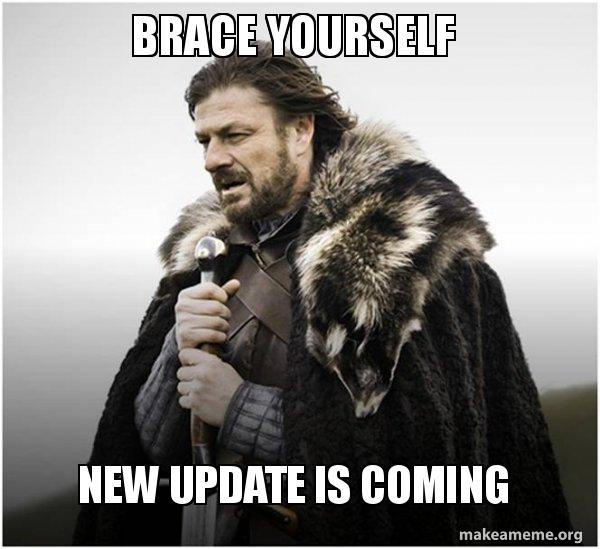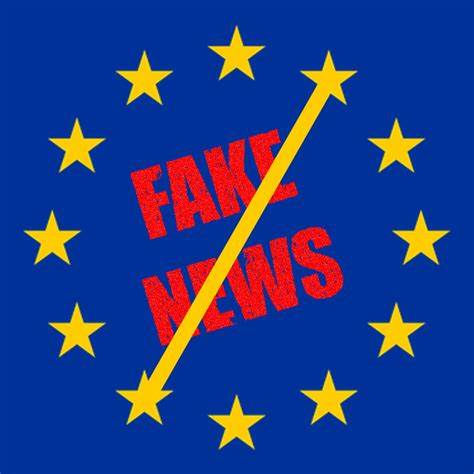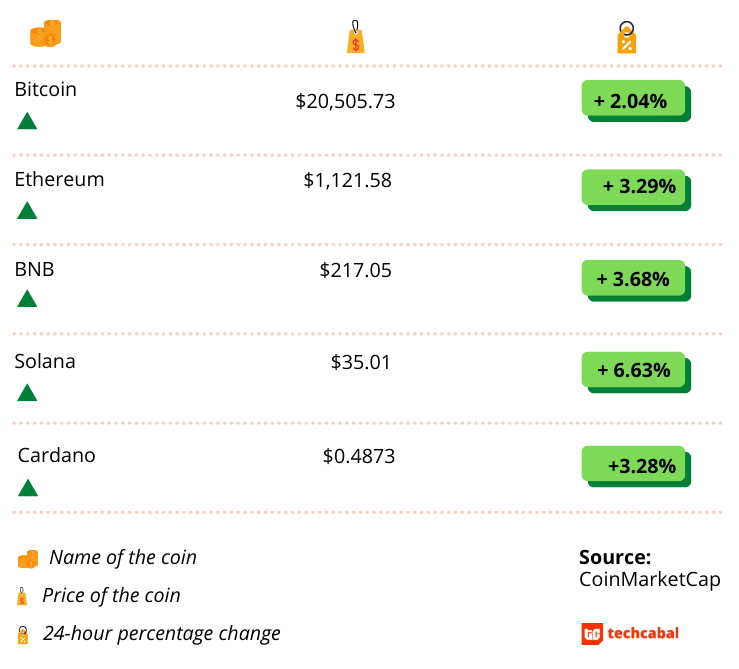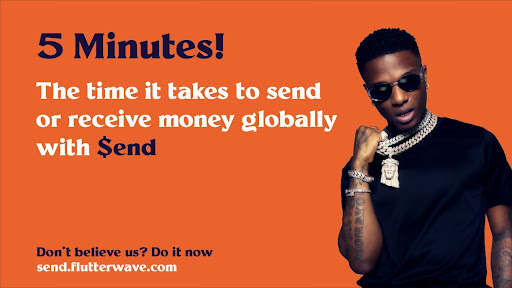
IN PARTNERSHIP WITH

Good morning 🌄
WhatsApp has launched a few new updates for its voice and video call features.
Now, users will be able to add up to 32 people on voice calls, or up to 8 people on video calls.
The app will also allow users to mute people during meetings so if there’s a cock crowing from one end while you’re on a WhatsApp group call, or if someone’s breathing is annoying the hell out of you, you can mute them for yourself.
WhatsApp will also alert you when someone joins a group call. It’ll allow you to message people within a group call, just in case you want to gab about which speakers sound like broken records. 💀
Now all that remains is that edit button.
In today’s edition
- Uber’s new feature for Kenyan drivers
- Ethiopia wants to digitise health records
- Almost everyone signs up for EU’s new disinformation code
- Opportunities
UBER INTRODUCES APP UPDATES FOR DRIVERS AND PASSENGERS

Uber is speeding up the features its Kenyan drivers can access.
The global ride-hailing company will be introducing new app features for drivers. One of them will allow Uber drivers to choose a route or vicinity where they want to operate, and another will allow riders to use the Nairobi Expressway.According to Uber’s head of East Africa, Imran Manji, the features will be piloted in a month.
What is so cool about these updates?
Uber drivers being able to choose a route or vicinity where they want to operate is definitely good news. The feature offers more flexibility to people who work other jobs as they drive routes that they’re more familiar with.
This feature is yet another way Uber is making driving safer for its African drivers. In South Africa, it recently organised trainings for its drivers in South Africa in partnership with the South African police. Some of them had been harassed and beaten by their passengers. With this feature, Kenyan drivers can choose to not operate in areas where they do not feel safe.
The other feature gives passengers the option to use the Nairobi Expressway instead of being stuck in heavy traffic along the road that links Mlolongo to the Nairobi-Nakuru highway. If a passenger chooses to use the toll road, the ensuing toll charges will be passed to the passengers and reflected on their fares.Currently, motorists are paying between Ksh121 ($1.04) and Ksh1,823 ($15.55) to use the toll road. That’s a fair price to pay for moving to and fro the Jomo Kenyatta International Airport (JKIA) faster, right?
The features that have been announced so far sound like game changers for everyone involved—Uber drivers, Uber passengers, and Uber which might land a good blow on its competitors in the country if the adoption does drive sales, as expected.
Innovation is always a great way to gain competitive advantage. Will this human-centred approach to business change drivers’ perception of Uber and make them drop the case against the ride-hailing company in court?
Don’t just send money, send money fast. Send and receive money directly to mobile wallets, bank accounts, Barter or through cash pickup with $end.
Visit send.flutterwave.com and do it now!
This is partner content.
ETHIOPIA TO DIGITISE HEALTH RECORDS IN MARGINALISED AREAS

The Ethiopia Ministry of Health, Mastercard, Gavi, and John Snow, Inc (JSI) have partnered to implement Mastercard Wellness Pass in Ethiopia. The goal is to increase access to critical healthcare and ensure that it is delivered in an efficient and effective manner in the most marginalised communities.
What is a Wellness Pass?
The Mastercard Wellness Pass is an offline portable healthcare credential launched by Mastercard. It was designed for digitising vaccination records and bringing efficiency to COVID-19 vaccine deployment in marginalised communities. The cards ensure that regardless of connectivity, vaccination records are available any time through participating health facilities to verify vaccinations and adherence to vaccination cycles.
In Ethiopia, their use will be extended to ensure the digitisation of patients’ medical data to ensure general healthcare continuity
How does it work?The card is issued to patients by participating health facilities when they get their first vaccine or health service. It will be used for healthcare tracking and offline portability of health records.
The first phase of the implementation of the Wellness Pass technology will be focused on COVID-19 vaccination tracking. Deployed at health facilities throughout the country, including both urban and rural locations, the solution will be piloted over a 15-month period.
Upon the success of that, the use of the Wellness Pass will be scaled across multiple health care programs which will be determined in partnership with the Ministry of Health.
This initiative by the Ministry of Health is a part of the Information Revolution Agenda, a component of the Health Sector Transformation Plan that seeks to improve the availability, accessibility, affordability, and quality of primary health care, thereby improving the health and wellbeing of the Ethiopian population.
A turbulent horn
This nascent transformation is birthing in the midst of a political storm raging in the Horn of Africa region. Prime Minister Abiy Ahmed executed a military operation against rebellious Tigrayan leadership. He said it would be a swift and bloodless victory, but it has dragged on since 2020. Guerrilla wars, ethnic-based violence, inflation, and a strained relationship with the US endangers thousands of civilians including children in rural and mountainous areas. Road access to places such as Tigray has been blocked.
Will these citizens be excluded from the Mastercard Wellness Pass and, consequently, the Information Revolution Agenda of the country?
Fincra provides easy-to-integrate APIs developed and designed to launch seamless and reliable global payment solutions.
With Fincra’s customisable APIs, developers can build quick financial applications.
Build the best payment solutions on Fincra.
This is partner content.
ALMOST EVERYONE SIGNS UP FOR EU’S NEW DISINFORMATION RULES

Last week, the European Union announced a new “strengthened” anti-disinformation code to push down against fake accounts and fake news.
The new Code of Practice on Disinformation is an update to the EU’s 2018 Code of Practice on Disinformation, and unlike it’s predecessor, the new Code will be enforceable by the new Digital Services Act (DSA) which was enacted in April, 2022, and prescribes fines of up to 6% of a company’s annual revenue for non-adherence.
If you’re wondering why they’re updating the Code, it’s because of the spread of rampant disinformation during the pandemic where most social platforms allowed users to post misleading and harmful information about COVID and the vaccine.
What’s the update on this new Code?
The new Code has 44 commitments targeted at stemming disinformation. Operators of online platforms like Facebook and Twitter will have to adhere to these commitments. These include commitments to create searchable libraries for political adverts, demonetise fake news sites by removing their advertising revenue, and give researchers “better and wider access to platforms’ data”.
Who has signed up?
Almost all of the big players in the social media space. Meta, Microsoft, Google, Twitter, Twitch, and TikTok have all agreed to adhere to the new Code, as some of them already practice what’s in it.
Apple and Telegram, however, are yet to respond.
This is partner content.
OPPORTUNITIES
- Substack’s Sound of Summer Workshop is now open to applications from podcasters, audio creators, musicians, and sound-obsessed Substack writers. Selected writers will attend a month-long workshop, learning storytelling, production and editorial strategies from the Substack team. They’ll also receive a $1,000 stipend, production-enhancing audio services, essential gear, and tailored guidance. Apply here.
- AIESEC is holding an SDG innovation challenge event (Youth Speak Forum) for young Nigerians. The two-day forum will empower youths to create projects that will directly affect their communities and equip them with valuable skills and qualities needed to impact their future work positively. Find out more here.
- develoPPP Ventures is offering €100,000 ($107,831) grants to high-potential startups from Ghana, Kenya, and Tanzania. Young high-growth startups with less than €2 million ($2.15 million) in funding so far can apply for the grant here.
- The Future Rural Africa’s Female Researchers Grant 2022 is now open to applications to female African researchers who want to gain more visibility and expand their network. Up to €5,000 ($5,300) will be awarded to select participants. Apply here.
What else we’re reading
- The Next Wave: Tech’s promises in Africa are under scrutiny.
- Kenya’s Jumba raises $1 million to build a B2B platform.
- Kenya’s insurtech mTek secures $3 million investment for digital insurance penetration.
- Cape Town launches into metaverse via a Roblox campaign.
SIGN UP FOR THE NEXT WAVE

Find out how African tech will shape the future in The Next Wave newsletter. Sign up here.




















